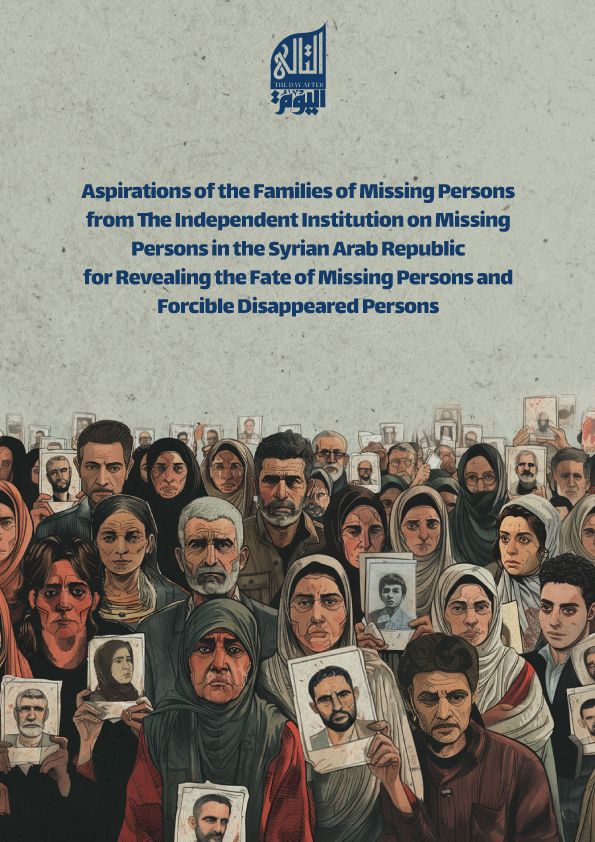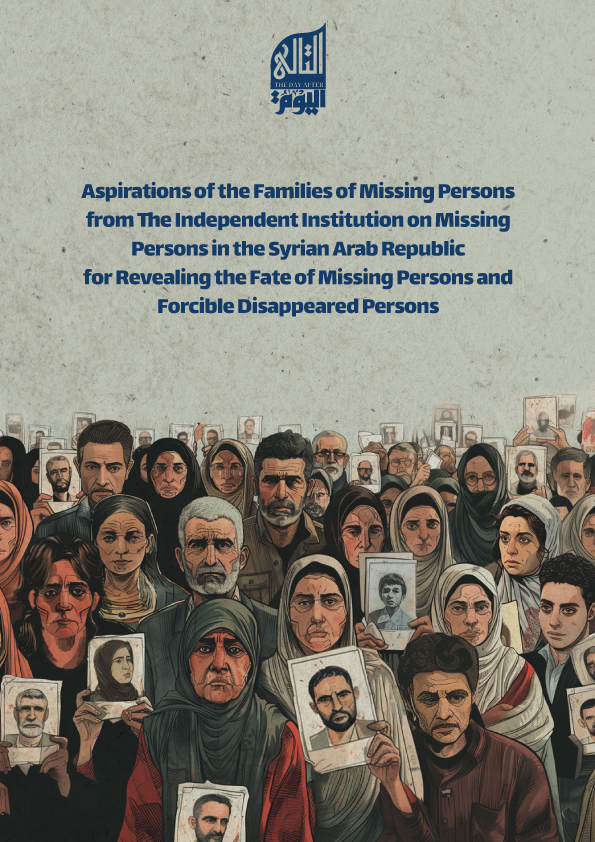 Date: May 2024
Date: May 2024
As the war in Syria dragged on, the issue of the missing is still without any solution and families of the missing and the forcibly disappeared in Syria suffer from the implications of disappearance at several levels. Along the years of disappearance, several associations concerned with the issues of the missing and the forcibly disappeared have been formed, and several parties worked on varying documentation mechanisms for the records of disappearances and missing cases and the actors responsible for these incidents. Due to the efforts exerted in this field, as well as publishing numerous reports on the missing and their families, a resolution was adopted establishing a new international institution for revealing the fate of missing and forcibly disappeared persons in Syria and their whereabouts and providing support for the victims and their families; it was adopted by the UN General Assembly on 23 June 2023.
With the announcement of the commencement of the work of the New Institution early April 2024, expectations of those families rose again in terms of revealing the fate of their loved ones. This study is conducted to observe the priorities, needs, perceptions and expectations of the families of the missing people from the new institution.
The study is based on a large research sample that reached 2,560 male and female respondents from the families of missing persons, 51.6% of them were males and 48.4% were females. The sample included different areas: (regime-held areas, areas of the Salvation Government, areas of the Interim Government, areas of the Autonomous Administration, and neighboring countries “Lebanon, Jordan, Iraq, Egypt”, Türkiye, and European countries). The sample was selected from the various places where Syrians are present, in light of the Syrian diaspora that began in 2011.
The study used the “analytical descriptive methodology” which describes the phenomenon in question and interprets it. This methodology depends on interpreting an existing situation and defines the dynamics and relations among the variables. The main research tool was “the survey” which was designed based on variables that aim at revealing the reality of the families of missing people, their aspirations, needs and expectations from the new international institution. Data collection was conducted by a large group of male and female data collectors trained on the survey, with previous experience in this field, who were in the areas covered by the study.
